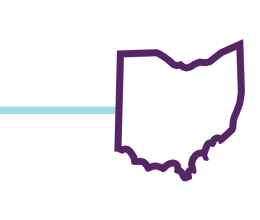SB 127 bans abortion after 20 weeks of pregnancy. A doctor could face a fourth degree felony and a mandatory license suspension for a violation.
If a doctor does think an abortion fits into one of the narrow exceptions, they must have a second doctor present for the procedure and yet another unknown physician, who is not required to be present at the procedure, sign off on the medical necessity of the abortion.
Prior to completing an abortion, a doctor is also required to determine a “post-fertilization age,” and to record the age. Failure to record the age is punished as a fourth degree misdemeanor and loss of medical license for no less than 6 months.
There are no exceptions in the bill for irreversible fetal anomalies, rape, incest and mental health concerns of the woman.
While a woman is not criminally liable for seeking an abortion, SB 127 does allow several individuals to file a civil action against a doctor who has performed an abortion after the prohibited post-fertilization age. These individuals include the woman on whom the abortion was performed, the father of the fetus, or even the estate of the woman.
Jurisdiction/Legislation Level
State
LCS Legislation Status
https://www.legislature.ohio.gov/legislation/legislation-status?id=GA131...
Our Take on This Bill
SB 127 would criminalize abortions far earlier than the current law allows and create a brand new standard, contrary to U.S. Supreme Court precedent by mandating that abortions cannot be performed after 20 weeks.
Every woman’s circumstances are different. Even if we may disagree on abortion, we should agree that these decisions are best made by the woman, in consultation with her doctor and family.
SB 127 makes exceptions for none but the mother’s physical health. By not including exceptions related to serious and irreversible fetal anomalies, rape, incest and mental health concerns, SB 127 will ensure these abortions are complicated and performed under a cloud of uncertainty and intimidation.
The ACLU of Ohio strongly opposes this legislation and urges the General Assembly to more carefully consider the full consequences to enacting this risky legislation that could jeopardize a woman’s health and life.
Bill Status
Introduced in the Senate on 3/16/15. Referred to the Senate Health and Human Services Committee on 3/17/15. Received Committee hearings on 6/10/15, 6/17/15, 6/23/15. Passed out of the Senate Health and Human Services Committee on 6/24/15. Passed the Senate on 6/24/15.
Introduced in the House on 6/25/15. Referred to the House Committee on Community and Family Advancement on 10/1/15. Received Committee hearings on 10/6/15, 10/13/15, 12/6/16 (no testimony), 12/7/16. Passed out of the House Committee on Community and Family Advancement on 12/7/16. Passed the House on 12/8/16
Senate concurred in House amendments on 12/8/16
Signed by the Governor on 12/13/16. Effective as of 3/14/17
Committees
Health and Human Services (S)




